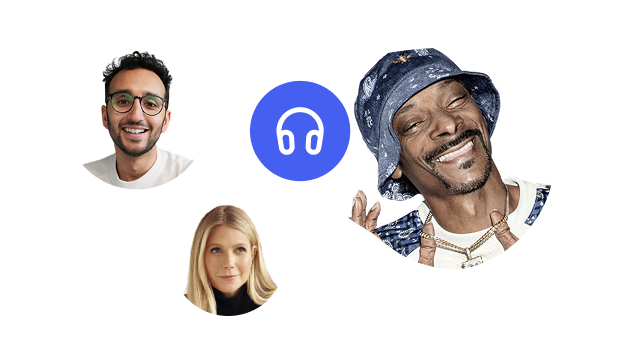The sound of a voice is as unique as a fingerprint. Each individual has a distinct timbre, tone, and cadence. Voice cloning, over the years, has evolved to replicate this uniqueness. This has been utilized in different industries such as the music, entertainment, and education industries. With advancements in artificial intelligence and deep learning, we now witness voice synthesis's pinnacle. Enter Speechify, a cutting-edge Text-to-Speech (TTS) and voice cloning tool that can be used on different operating software such as Android.
The Evolution of Voice Cloning
Voice cloning is not a new concept. It started with simple voice changers that altered pitch and modulation. However, the era of synthetic voices truly began with advancements in deep fake and deep learning technologies. The early methods were based on basic algorithms that lacked the finesse of human voices.
However, the evolution accelerated with the involvement of artificial intelligence. AI voice cloning, leveraging machine learning, began to produce high-quality voiceovers mimicking a person's voice. These were not mere voice changers. They were a synthesis of algorithms that could generate a custom voice so authentic that differentiating between the cloned and original became challenging.
How Does AI Make Voice Cloning Work?
Voice cloning, at its core, is an intricate blend of technology and art, and artificial intelligence has refined this blend to an astonishing degree. But how does it manage to replicate the unique idiosyncrasies of human speech?
1. Data Collection and Preprocessing:
Before any magic happens, the AI system requires raw data. This comes in the form of voice recordings. Users typically provide several minutes of their own speech, reading predefined texts. This collection becomes the foundational dataset on which the voice model is built. During preprocessing, the AI segregates this data into smaller chunks, making it more manageable and removing any background noises or distortions.
2. Feature Extraction:
Human speech is a complex combination of pitch, modulation, tone, and rhythm. Using deep learning, the AI scrutinizes the voice data, isolating these features. It discerns patterns, like the rise and fall in tone when asking questions or expressing excitement.
3. Neural Network Training:
Deep learning, especially a subset called deep neural networks (DNNs), lies at the heart of voice cloning. These networks, inspired by human brain architecture, are trained using voice data. They adjust their internal parameters (called weights) to minimize the difference between the generated voice and the original recording. The more data they're trained on, the better they become at mimicking the unique characteristics of the input voice.
4. Voice Synthesis:
Post training, when the neural model is fed new text data, it uses its trained parameters to produce speech. This is where the actual synthesis occurs. The text is converted into a voice that bears the auditory signature of the original recordings. Advanced models also ensure emotional undertones are captured, making the generated voice sound not just identical, but also authentic in its emotional conveyance.
5. Iterative Refinement:
AI voice cloning is a continuous process of learning and refinement. The more data the system is exposed to, the better it gets. Feedback loops are often integrated, allowing users to correct or fine-tune the generated voice. Over time, the AI gets proficient at delivering high-quality voice outputs that can deceive even the keenest ears.
6. Customization and Fine-tuning:
Once a base voice model is generated, users often have tools at their disposal to make minute adjustments. They can modify the pace and pitch, or even add specific modulations, tailoring the synthetic voice to exact requirements.
With such robust processes in place, it's no wonder that AI voice cloning has seen exponential growth in its capabilities. Speechify Voice Cloning and similar platforms harness these methodologies, allowing users to create eerily accurate replicas of their own voice, making the realm of voiceovers and content creation an exciting space to watch.
Using Speechify Voice Cloning on Android
The arrival of Speechify on Android has revolutionized the way we perceive TTS and voice cloning software. Not just a pro tool for content creators, it opens a realm of possibilities for regular users too.
To clone your voice on Android using Speechify Voice Cloning:
1. Download the Speechify app from the Google Play store.
3. Sign in and navigate to the voice cloning section.
4. Follow the instructions to record your own unique voice.
5. The app will use AI to analyze and create a voice model based on your recordings.
6. Once the model is ready, you can use it for various purposes – from voiceovers for YouTube videos to podcasts and audiobooks.
The best part? You don’t have to be a tech geek to do this. Speechify Voice Cloning's user-friendly interface ensures even beginners can harness the power of voice cloning.
Speechify Studio
Speechify Studio is an AI voice over platform, featuring over 1,000 AI text to speech voices in a wide range of languages, accents, and emotional tones. Whether you need lifelike narration, dynamic character voices, or localized audio, Speechify makes it simple to create professional-grade content. The platform also includes AI dubbing to seamlessly translate and voice videos in other languages, voice cloning to create a custom AI version of your own voice, and a voice changer to reshape existing recordings. From content creators to educators to businesses, Speechify Studio gives you all the tools to tell your story in any voice.
FAQ
How do I clone my voice on Android?
Use the Speechify app available on Google Play. Record your voice, and the app will handle the rest, using advanced AI algorithms.
What is voice cloning used for?
Voice cloning has a myriad of uses, from creating custom voiceovers for podcasts, YouTube videos, and video games, to aiding those with disabilities. It's also used by content creators and voice actors to produce a variety of different voices. Additionally, audiobooks can be created.
How does voice cloning work?
Voice cloning relies on deep learning algorithms to analyze voice recordings. These algorithms create voice models that generate speech voices identical to the recorded voice. Additional adjustments can be made to make the voices sound as seamless as possible.
What is the best voice cloning app for Android?
Speechify Voice Cloning stands out due to its high-quality AI voice cloning capabilities, making it the best voice cloning tool for Android.
Is voice cloning illegal?
Voice cloning itself is not inherently illegal. However, the potential misuse of voice cloning technology raises ethical, privacy, and legal concerns. Here are scenarios where voice cloning can cross legal and ethical boundaries: impersonation and fraud, deep fakes, consent issues, intellectual property, and national security concerns. Different countries and jurisdictions might have specific laws or regulations pertaining to voice cloning, deepfakes, and synthetic media.



